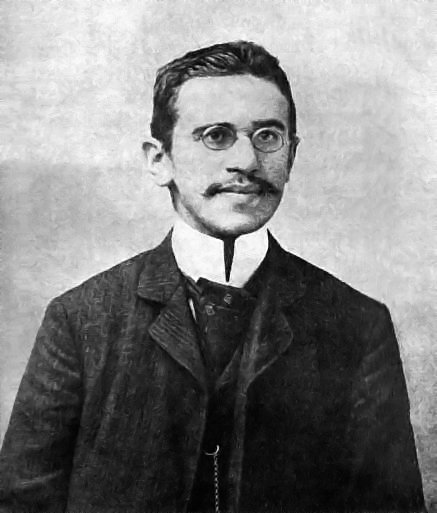Collected Aphorisms
Contexte: Most of the time man does not do what he wills, but what he has willed. Through his decisions, he always gives himself only a certain direction, in which he then moves until the next moment of reflection. We do not will continuously, we only will intermittently, piece by piece. We thus save ourselves from willing: principle of the economy of the will. But the higher man always experiences this as thoroughly immoral.
Otto Weininger: Citations en anglais
Große Männer nehmen sich selbst und die Dinge zu ernst, um öfter als gelegentlich »geistreich« zu sein. Menschen, die nichts sind als eben »geistreich«, sind unfromme Menschen; es sind solche, die, von den Dingen nicht wirklich erfüllt, an ihnen nie ein aufrichtiges und tiefes Interesse nehmen, in denen nicht lang und schwer etwas der Geburt entgegenstrebt. Es ist ihnen nur daran gelegen, daß ihr Gedanke glitzere und funkle wie eine prächtig zugeschliffene Raute, nicht, daß er auch etwas beleuchte! Und das kommt daher, weil ihr Sinnen vor allem die Absicht auf das behält, was die anderen zu eben diesen Gedanken wohl »sagen« werden—eine Rücksicht, die durchaus nicht immer »rücksichtsvoll« ist.
Source: Sex and Character (1903), p. 104.
Logik und Ethik aber sind im Grunde nur eines und das-selbe.
Pflicht gegen sich selbst. Sie feiern ihre Vereinigung im höchsten Werte der Wahrheit...
Source: Sex and Character (1903), p. 159.
Es gibt Männer, die imstande sind, eine Frau, die sie in keiner Weise anzieht, zu heiraten—bloß weil sie den anderen gefällt. Und solche Ehen gibt es auch zwischen so manchen Menschen und ihren Gedanken.
Source: Sex and Character (1903), p. 104.
“Genius declares itself to be a kind of higher masculinity.”
Source: Sex and Character (1903), p. 111.
Collected Aphorisms
so condemning the moral psychology which would derive morality from the social life of man
Source: Sex and Character (1903), p. 151.
“A man is himself important precisely in proportion that all things seem important to him.”
Source: Sex and Character (1903), p. 127.
Kein Mensch kann sich selbst je verstehen, denn dazu müßte er aus sich selbst herausgehen, dazu müßte das Subjekt des Erkennens und Wollens Objekt werden können: ganz wie, um das Universum zu verstehen, ein Standpunkt noch außerhalb des Universums erforderlich wäre.
Source: Sex and Character (1903), pp. 105-106.
Einen Menschen verstehen heißt also: auch er sein. Der geniale Mensch aber offenbarte sich an jenen Beispielen eben als der Mensch, welcher ungleich mehr Wesen versteht als der mittelmäßige. Goethe soll von sich gesagt haben, es gebe kein Laster und kein Verbrechen, zu dem er nicht die Anlage in sich verspürt, das er nicht in irgend einem Zeitpunkte seines Lebens vollauf verstanden habe. Der geniale Mensch ist also komplizierter, zusammengesetzter, reicher; und ein Mensch ist um so genialer zu nennen, je mehr Menschen er in sich vereinigt, und zwar, wie hinzugefügt werden muß, je lebendiger, mit je größerer Intensität er die anderen Menschen in sich hat.
Source: Sex and Character (1903), p. 106.
Collected Aphorisms
